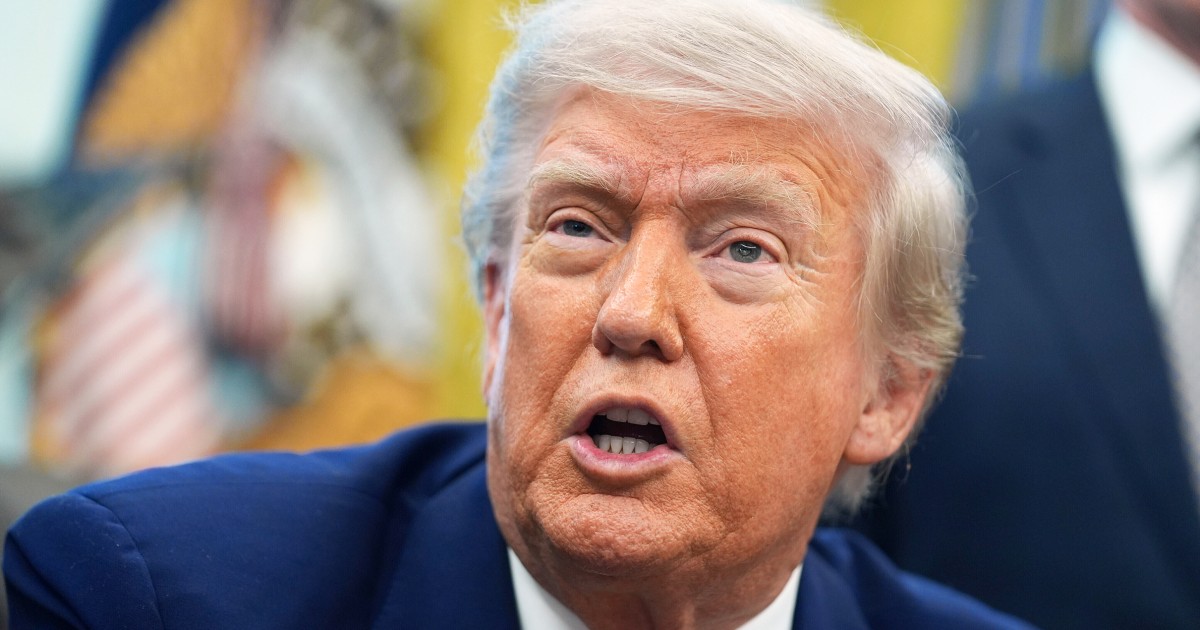President Donald Trump signed a proclamation Wednesdaythat bans nationals from a dozen countries, including Afghanistan, Haiti and the Republic of Congo, from entering the United States, framing the travel ban as necessary to fortify national security and building upon one of the most contentious policies of his first term.
“I directed the Secretary of State, in coordination with the Attorney General, the Secretary of Homeland Security, and the Director of National Intelligence, to identify countries throughout the world for which vetting and screening information is so deficient as to warrant a full or partial suspension on the admission of nationals from those countries,” Trump wrote in his proclamation.
Trump banned nationals from 12 countries from entering the United States: Afghanistan, Burma, Chad, Republic of Congo, Equatorial Guinea, Eritrea, Haiti, Iran, Libya, Somalia, Sudan and Yemen.
Several of the countries on the list, according to Trump’s proclamation, regularly declined to accept the return of their citizens or had visa overstay rates the administration deemed “unacceptable” and indicative of “a blatant disregard for United States immigration laws.”
Others on the list, like Sudan, Yemen and Somalia, were included for inadequate screening and vetting measures, the administration said.
An additional seven countries came under partial travel restrictions, in which entrance into the country under several visa programs was suspended but an outright ban was not implemented. Those countries are Burundi, Cuba, Laos, Sierra Leone, Togo, Turkmenistan and Venezuela.
The travel restrictions are set to go into effect at 12:01 a.m. ET Monday.
The proclamation includes exemptions for any lawful permanent resident of the United States, recipients of Afghan Special Immigrant Visas and any athlete or member of an athletic team traveling to the country for the World Cup or the Olympics.
In a video the White House shared Wednesday night, Trump called the travel restrictions one of the “most successful policies” of his first term. He pointed to a recent violence in Boulder, Colorado, in which a man injured at least 12 protesters in what city officials called an antisemitic attack to justify the need for a renewed travel ban.
“A recent terror attack in Boulder, Colorado has underscored the extreme dangers posed to our country by the entry of foreign nationals who are not properly vetted, as well as those who come here as temporary visitors and overstay their visas. We don’t want them,” Trump said.
The suspect in that attack, Mohamed Sabry Soliman, is from Egypt and entered the country on an tourist visa before applying for asylum. His tourist visa expired as his asylum case was pending. Egypt is not on the list of countries with travel bans announced Wednesday.
Soliman’s family was taken into custody by ICE and were being processed for removal proceedings, according to Department of Homeland Security Secretary Kristi Noem. A judge subsequently issued an order Wednesday to prevent the deportation of Soliman’s wife and five children.
Trump added that his administration considered “the large-scale presence of terrorists, failure to cooperate on visa security, inability to verify travelers identities, inadequate record-keeping of criminal histories, and persistently high rates of illegal visa overstays” in determining the countries that would be affected.
During his first term, Trump similarly banned foreigners from six Muslim-majority countries from entering the United States, citing terrorism concerns. Despite Democratic backlash and several legal challenges to the effort, the Supreme Court in a split decision ultimately upheld the policy, with Chief Justice John Roberts making clear at the time that the ability to regulate immigration falls within the president’s purview.
Those restrictions remained in place until January 20, 2021, when then newly-elected President Biden overturned them after signing a proclamation titled “Ending Discriminatory Bans on Entry to The United States.”















